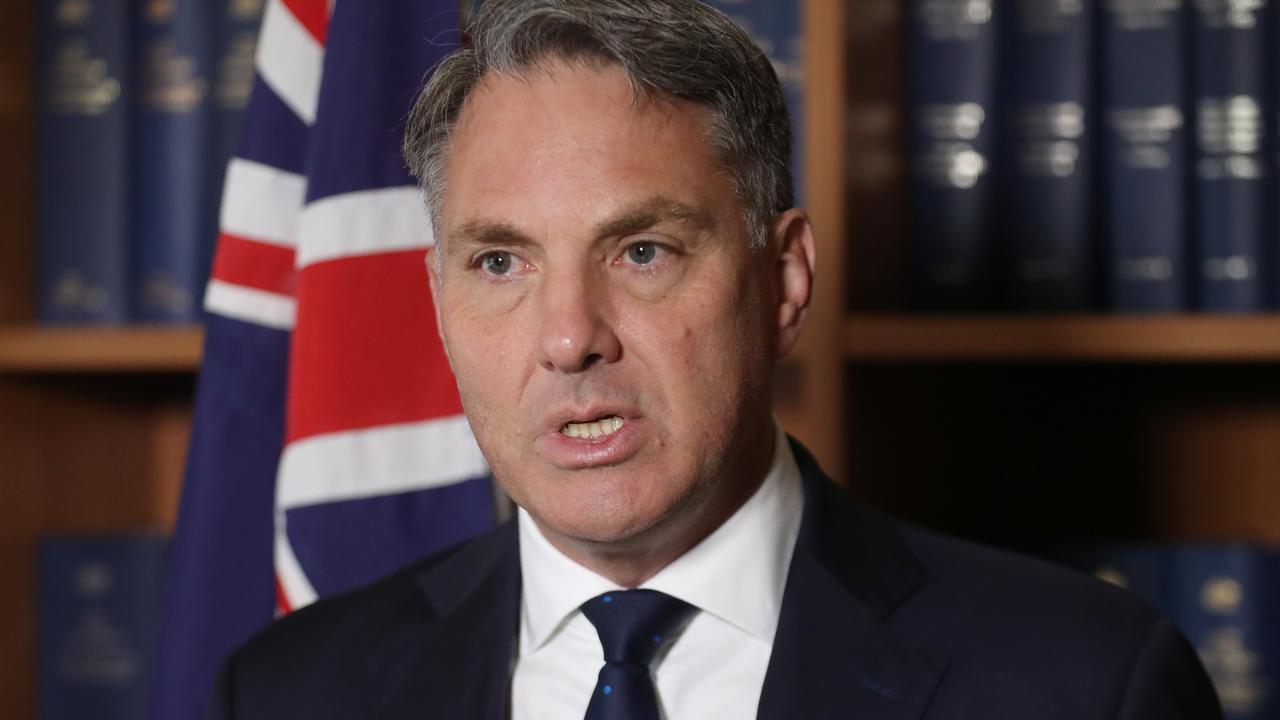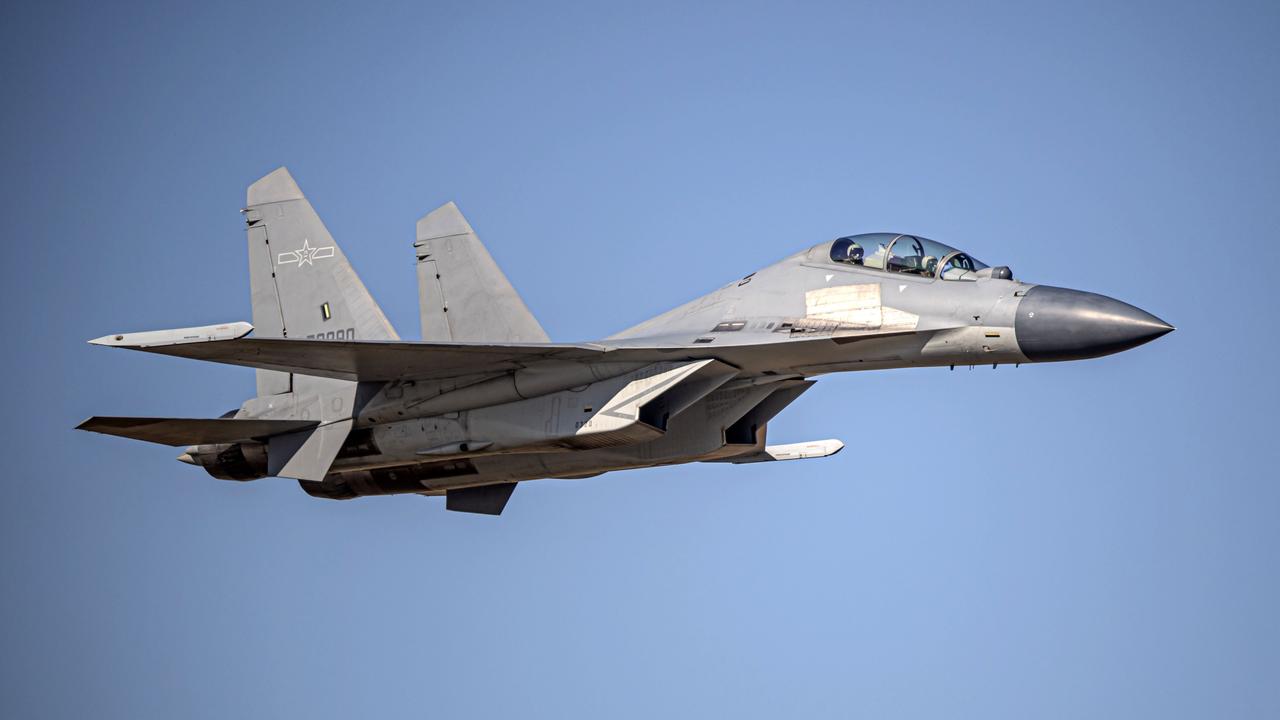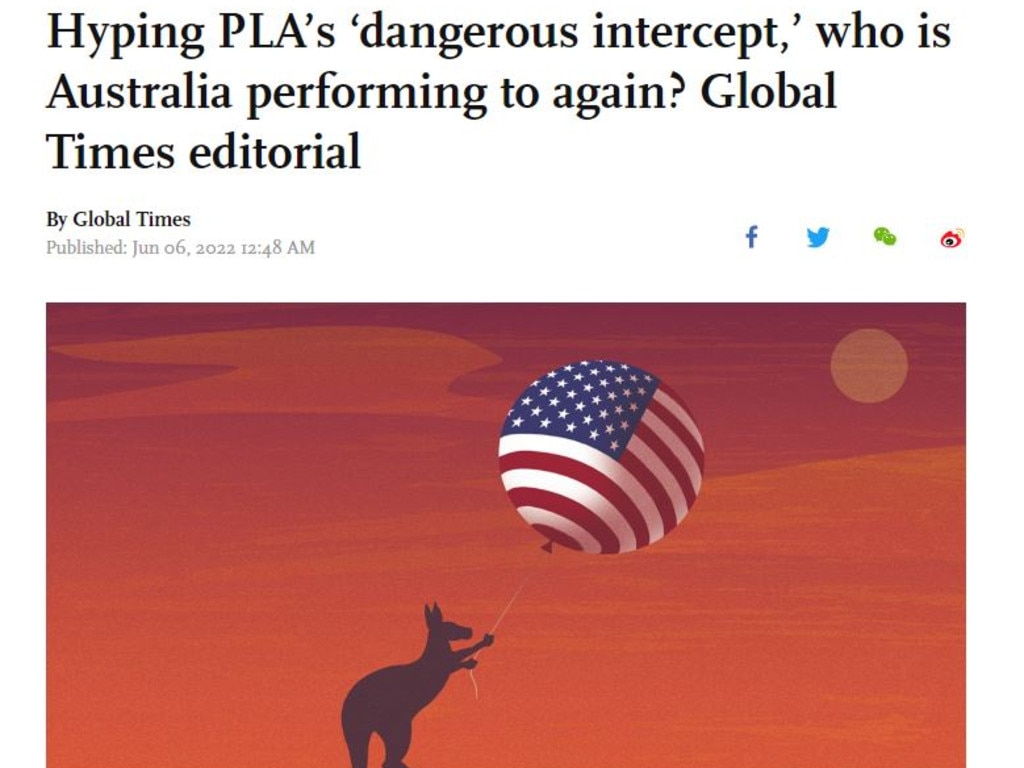Anthony Albanese responds as China lashes out at Australia over ‘dangerous’ fighter jet claim
Prime Minister Anthony Albanese has revealed if he’s heard from Beijing after an editorial lashed out at claims of a dangerous interaction.
Beijing has slammed Australia in response to its criticisms over an incident with a Chinese military plane in the South China Sea, warning the nation to “be cautious with its words”.
On Sunday, Defence Minister Richard Marles said the Australian government had raised concerns with Beijing about the “very dangerous” mid-air incident, which occurred in international airspace on May 26.
Mr Marles said the RAAF P-8A Poseidon aircraft was carrying out routine maritime surveillance when it was intercepted by a Chinese J-16 fighter aircraft, with the latter flying “very close to the side” of the Australian plane.
“In flying close to the side, it released flares, the J-16 then accelerated and cut across the nose of the P-8, settling in front of the P-8 at very close distance,” Mr Marles told reporters in Geelong.
“At that moment, it then released a bundle of chaff which contained small pieces of aluminium, some of which were ingested into the engine of the P-8 aircraft.”
Speaking in Jakarta after meeting with Joko Widodo on Tuesday, Mr Albanese confirmed he has not heard back from Beijing after raising concerns over the incident.
He labelled the incident as dangerous and an act of aggression and said the government had passed that message onto Beijing.
Mr Albanese says China hasn’t responded.
“I have not heard back at this point,” he said.
“We have made representations through appropriate channels, we’ve also made the public comments, so it hasn’t been just quiet diplomacy in this case.”
Overnight, Foreign Ministry spokesperson Zhao Lijian urged Australia “to respect China’s national security interests and major concerns, and to be cautious with its words and deeds so as to avoid a miscalculation that could cause serious consequences.”
Stream more world news live & on demand with Flash. 25+ news channels in 1 place. New to Flash? Try 1 month free. Offer ends 31 October, 2022 >


Mr Marles said the RAAF crew were all unharmed and they had responded professionally and returned the plane to the base after the incident.
Beijing’s anger at the situation has also become evident with a furious editorial appearing in the Communist Party-controlled Global Times.
The outlet claimed it was obvious that some “pivotal details have been deliberately concealed” by the Australian government.
“For example, where exactly in the South China Sea is the area in which the incident occurred? How far is it from the Chinese islands and reefs in the region? What is their purpose here? Furthermore, what did the Australian military aircraft do before the intercept?” the editorial stated.
“How far was the Australian jet from the Chinese aircraft at that time? Why didn’t Australia take the initiative to announce it?”

TheGlobal Times claimed the Australian military has repeatedly and “groundlessly” accused the Chinese military of conducting unsafe operations, but said these claims always come as “loud and urgent” despite having little evidence.
This most recent incident comes after a Chinese navy ship in February aimed a military-grade laser at another Australian surveillance aircraft mid-flight.
However, the Global Times claimed China released evidence showing the “malicious provocation of the Australian jet dropping sonobuoys”.
“After that, Australia immediately fell silent. It has to be said that the Australian military has obviously become a ‘professional for blackmail’ habitually,” the article claimed.
The article then turned its attention to Mr Marles, accusing him of pretending to be “the weak” by telling reporters that Australia wouldn’t be deterred by China’s intimidation.
Mr Marles was accused of deliberately picking this tone as the outlet claims it is one that’s “favoured” by American and Western journalists.
“It seems more like a little bully in the region that always coerces others,” the outlet claimed saying it is difficult to imagine that Canberra is the one “being coerced”.
The publication referenced data that shows Australian military aircraft have visited the East China Sea north of the island of Taiwan six times this year between February 24 and March 11 to conduct close-in reconnaissance activities.
“Australia used to be relatively restrained in the South China Sea disputes, which shows that it was well aware of the issue’s sensitivity. But in the past few years, the former Morrison administration became increasingly close to Washington,” the publication stated.
“In many areas, it has provoked China on Washington’s behalf, and the most aggressive provocations occur in the military field.
“Canberra wants to become Washington’s ‘right-hand man’ and regards itself as the ‘deputy sheriff” of the Asia-Pacific region. And even if Australia has limited capabilities, it is still nice for it to pretend to be an ‘auxiliary police officer’.”
The articled branded Australia’s approach to China as “inappropriate and unwise”, pointing out Australia has relied heavily on trade with Beijing.
“Judging from the two recent incidents involving the ship and the aircraft, we need to remind Canberra that Sinophobia does Australia more harm than good,” the article read.
“It has been proven time and again that the more ‘conscientiously’ Canberra acts in front of Washington, the more easily the former will become a stepping stone.”
With Anthony Albanese now in office, Beijing claimed that Australia will need to take “actual actions” if it wants to improve relations with China.
“At least one thing is clear: No one can act as Washington’s ‘goon’ while making a fortune from China. It just doesn’t work that way,” the Global Times added.
Yesterday, Mr Albanese said the federal government was concerned about the incident.
“This was not safe, what occurred, and we’ve made appropriate representations to the Chinese government expressing our concern at this,” he said.




